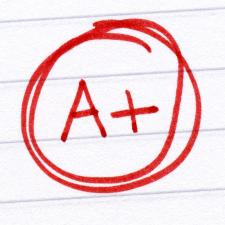Juniors: Here's what you need to know when selecting next year's classes
Posted on Thu, 01/23/2014 - 12:56Juniors, as you meet with your counselor to select your classes for next year, keep in mind that what colleges want to see are students whose course of study is characterized by appropriate challenge and rigor.
So what does that mean?
It means that colleges want to see evidence in your courses that you are willing to stretch intellectually and academically in the core areas of the curriculum -- science, math, English, social studies and foreign language -- and that your choice of classes demonstrates a pattern of increasing difficulty. For example, if a student wants to study science, she would take progressively more demanding courses in that core area. This is an important signal for college admission officers. In fact, one report found that taking progressively more difficult and higher- level courses increased an applicant’s chance of being accepted at a competitive college— more so than a higher grade point average.
Here's what Douglas Christiansen, vice provost for enrollment and dean of admissions at Vanderbilt University, has to say about what challenge and rigor mean:













